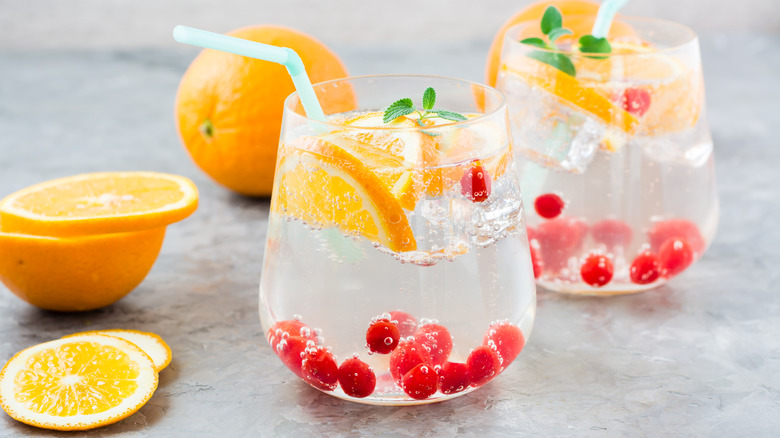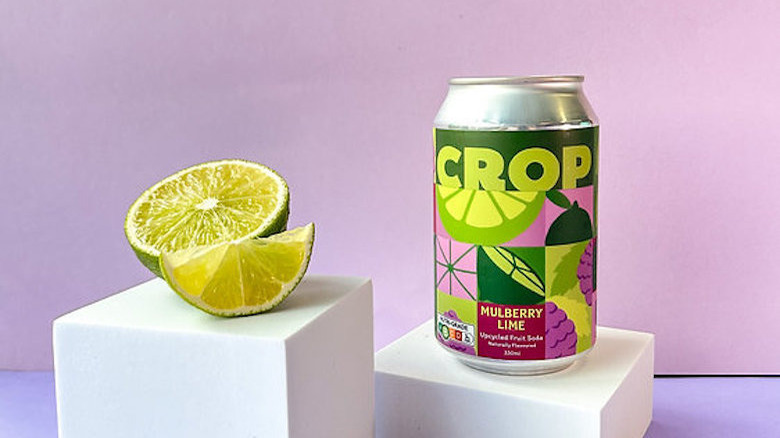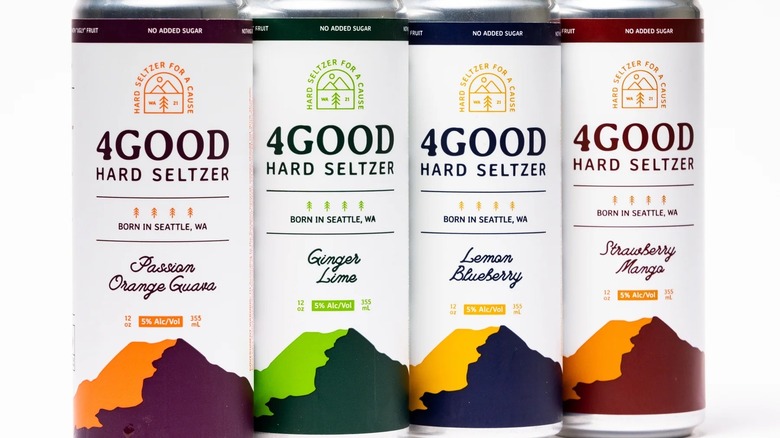Upcycling Produce Waste Is The New Trend In Fancy Seltzers And Sodas
While "sustainability" is a buzzword that many large companies use to imply that they are doing great things for the environment, much of the real on-the-ground food sustainability initiatives are happening among small companies using local and repurposed produce to make products as good for the environment as they are for you.
Boutique seltzer and soda companies are leading this sustainability charge through upcycling or reusing discarded produce and other ingredients in order to give them a new life. This might involve one company juicing fruit but saving its zest or pomace for other uses, or it could entail rescuing ugly produce and turning it into a delicious fruit juice that can be used to flavor a new seltzer.
Many of these companies are members of organizations like the Upcycled Food Association, which creates networking opportunities for businesses to ethically source their materials from other businesses with similar values.
Upcycled sodas and seltzers
Upcycling produce and other secondary food products is one way for beverage companies to offset the 30% to 40% percent of food that is wasted in the United States every year. But it often means getting a little creative with what ingredients are used in a soda or seltzer.
Singapore-based beverage company CRUST, which uses surplus bread to make its beer, recently launched its sister company CROP, which makes upcycled fruit sodas using rescued fruit zest and pulp. Xoca has a line of prebiotic sodas that use upcycled cacao fruit in its beverages. The tropical fruits are often discarded after their cacao seeds, which are used to make chocolate, are harvested, making them the perfect candidate for a new lease on life in these nutrient-rich sodas.
Spare Tonic, which is made in New York State, uses the unexpected, protein-packed ingredient of whey in its canned sparkling tonic, which is sourced from various Greek-style yogurt manufacturers in New York. The whey, which is used in the yogurt-making process, gets a second life as a flavoring and nutritional bonus to the drink.
Other ways to upcycle fruit
A large part of upcycling requires tackling the issue at both ends. Devil's Foot Beverage Company in Asheville, NC, uses local produce to make its sparkling lemonade flavored with strawberries, blueberries, peaches, and hops, which then gives a "Full Fruit Life."
When the company is done making its "Farm-To-Can" drinks, it collects all of the fruit zest and spent pulp from the production process for distribution to other beverage companies like Green Man Brewing and Asheville Tea Company, which use the excess fruit components to flavor teas and beer.
Even hard seltzers are getting into the upcycling game, like 4Good Hard Seltzer. It uses culled fruit or fruit that has been removed from the general market for aesthetic reasons and designed its four seltzer flavors based on the fruits it saw frequently being culled, like blueberries, passion fruit, and mango.



